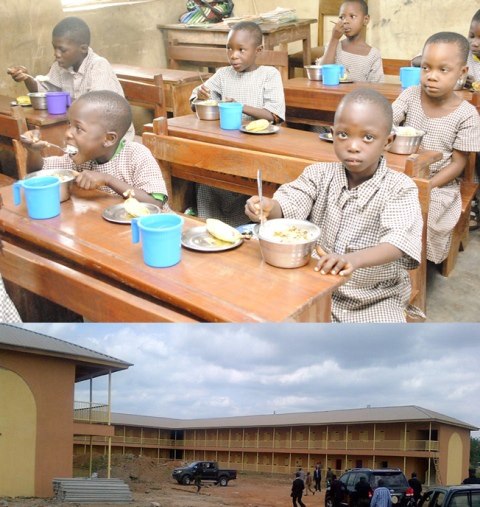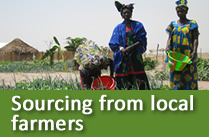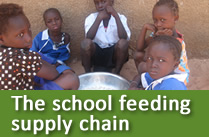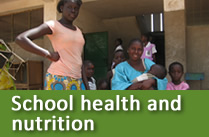Welcome to HGSF-Global.org/nigeria
 There were grim statistics for Nigeria from the recently released "State of School Feeding Worldwide Report", compiled by the World Food Programme (WFP).The report, launched at the United Nations headquarters in New York, indicated that only one out of five school children get a healthy school meal in developing countries. The report also presented a gloomy picture of Nigeria's school feeding programme highlighting that less than 500,000 school children get a decent meal in school. In that report, Nigeria and Cameroon shared the ignoble position of coming last.
There were grim statistics for Nigeria from the recently released "State of School Feeding Worldwide Report", compiled by the World Food Programme (WFP).The report, launched at the United Nations headquarters in New York, indicated that only one out of five school children get a healthy school meal in developing countries. The report also presented a gloomy picture of Nigeria's school feeding programme highlighting that less than 500,000 school children get a decent meal in school. In that report, Nigeria and Cameroon shared the ignoble position of coming last.
In 2004, Nigeria began a pilot project of Home Grown School Feeding and Health Programme (HGSFHP) which was part of the Universal Basic Education Programme. It was designed to feed pupils in elementary public schools. But out of the 13 states that participated in the programme, only one state remained committed to the continued implementation and improvement of the project: The state is Osun.
A review meeting of the 21 day behavioural change programme on hand washing, oral hygeine and healthy nutrition behaviours in Osun state was held on the 29 January 2013.
The Permanent Secretary on behalf of the commisioner moderated the meeting. The Partnership for Child Development (PCD), Imperial College London did a review of the programme which included: the training of the teachers to implementation, challenges encountered during the programme, and the impact the programme had on school pupils.
Page 4 of 4








